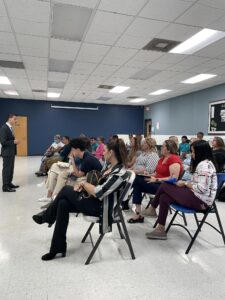“This is business not personal, Sonny!” the Corleone Family’s consigliere once exclaimed to Sonny Corleone, played by actor James Caan, in the critically acclaimed “The Godfather.”
Recently, business became very personal to the beneficiaries of the Estate of James Caan. However, it was not the result of any action from the Tattalglia Family or Barzini but rather the United States Tax Court in its ruling on Wednesday, October 10th. The Tax Court ruled that Caan’s Estate owes income taxes on $1.5 million from an individual retirement account (“IRA”) that was emptied, then liquidated while being overseen by Caan’s advisors.
An IRA belonging to Caan, who died on July 6, 2022, included a non-publicly traded partnership interest that was held in custody by UBS and became taxable after unanswered letters from UBS triggered full distribution to Caan in 2015, the Tax Court ruled in its decision.
In 2008, UBS became the custodian of two IRAs owned by Caan, both of which contained cash, mutual funds and traded funds. One of the IRAs contained a partnership interest. According to the custodial agreement between Caan and UBS, Caan was required to provide UBS with the fair market value of the partnership interest annually or UBS would end its custody and distribute the value of the partnership interest to him.
After Caan’s advisors failed to give UBS the 2014 partnership value by the due date in January 2015, UBS attempted to obtain the value from the hedge fund managing the account and sent two correspondences to Caan’s advisors. The final letter warned that the account was going to be distributed and outlined the tax implications, the Tax Court decision noted.
Caan reported the partnership interest distribution for 2015 on his tax return but claimed it was nontaxable. Based on UBS’s initial value of the partnership interest of nearly $2 million, rather than the $1.5 million valuation that Caan and the IRS eventually agreed was more accurate, the IRS issued a notice of deficiency for $780,000 for 2015 and an accuracy-related penalty of $156,000, according to the Tax Court decision.
“This case is a quintessential example of the pitfalls of holding nontraditional, non-publicly traded assets in an IRA,” Tax Court Judge Elizabeth A. Copeland wrote for the Tax Court. “Failure to follow the labyrinth of rules surrounding these assets can mean forfeiting their tax-advantaged status.”
Judge Copeland emphasized that it is extremely dangerous to hold private real estate and non-publicly traded assets within an IRA because of the strict rules against self-dealing and conflicts of interest, which are referred to as “Prohibited Transactions.”
Under 26 U.S.C. § 4975, a “Prohibited Transaction” includes any direct or indirect: 1) sale, lease or exchange of property between a plan and a disqualified person; 2) a loan or any extension of credit between a plan and a disqualified person; 3) furnishing goods, services or facilities between a plan and a disqualified person; and 4) transfer or use of plan income or assets to a disqualified person (including using the assets indirectly for the benefit of that person). A minor violation of one of these rules may result in substantial taxes and penalties, including being responsible for taxes on the entire balance of the IRA. Prohibited Transactions apply to uses of an IRA by the owner, the owner’s family, the IRA beneficiaries or any other “disqualified” person. An example of a Prohibited Transaction that would appear minor, is an IRA pays the IRA account holder’s son twenty dollars to shovel snow on property owned by the IRA. The son is a disqualified person and therefore any financial exchange with him, even if the amount is nominal, is prohibited.
Before utilizing IRA funds to invest in real property or the family olive oil business, it is important to consult with an experienced tax practitioner to understand the tax implications.
Craig Panholzer is an attorney in Cooper Levenson’s Business & Tax practice group in its Florida office. He concentrates his practice on business transactions, estate planning, special needs planning, probate and tax matters.
Michael Salad is an attorney in Cooper Levenson’s Business & Tax practice group. He concentrates his practice on estate and asset protection planning, special needs planning, business transactions, mergers and acquisitions and tax matters. Michael holds an LL.M. in Estate Planning and Elder Law. Michael is licensed to practice law in Florida, New Jersey, New York, Pennsylvania, Maryland, Connecticut, Georgia, Massachusetts, Alabama and the District of Columbia and regularly counsels clients who are seeking to relocate to Florida.









